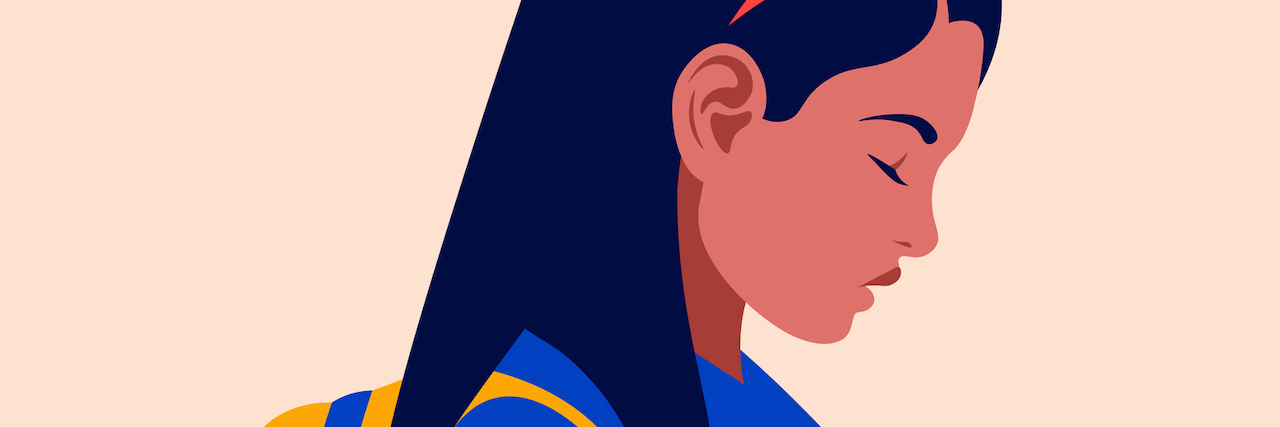The silent treatment, also known as the cold shoulder, stonewalling or love withdrawal, can be incredibly damaging. It can make you nervous, frightened, confused and lonely. While it is healthy to take some quiet time from an argument or upsetting event to lessen tension, gather thoughts and proceed mindfully, silence, with the sole intention to hurt someone, is manipulative.
As a child, the main form of discipline I endured was silence. My father would withhold all attention, affection and physically turn away from me when I was near him. He would talk with and be friendly with the other members of my family, but I was not acknowledged. I was literally shunned. Sometimes these punishments would last only a few hours. Most of the time the silence lasted days, weeks and months. This form of emotional abuse negatively impacted my mental health.
1. Fear and Anxiety — I continuously feared the next time I would have to endure the silent treatment. I walked on eggshells, living in a constant state of anxiety. I struggled with insomnia because I was always worried. Not knowing if a mundane action or word would lead to the silent treatment was torturous. At times one phrase could make him laugh, while days later the same phrase would make him cold and distant. My stomach was often in knots, and I developed digestive issues due to the constant state of anxiety.
2. People Pleasing — At a young age, I not only learned to comply to avoid punishment, but I went out of my way to do things to extend the happier moments. I’d wake up early to make him a fancy breakfast. I helped with all chores without being asked. I’d compliment and engage in conversations that he would find pleasing. I jumped at the opportunity to help and be useful. I showed the affection he wanted, even though it made me uncomfortable. I even sacrificed my body in other ways to avoid the unbearable silence.
3. Hyper-vigilant — I became exceedingly aware of body language. I knew what every facial expression meant. Crossed arms and rigid stare meant I had done something very wrong, and that I probably would have to endure the silence for at least a few days. A subtle downward look indicated I was on thin ice. Every move had meaning, and I learned the cues. I was on guard, and it was exhausting.
4. Depression — I was afraid to upset my father. I didn’t want to do anything that may make him upset. This included not asking to go to a friend’s house, join extracurricular activities or go anywhere else besides the front yard. I wasn’t allowed to have the fun I wanted, and therefore lost interest in many activities I once enjoyed. I became withdrawn and lonely. I wanted to sleep all the time. I binged on food as it was the only thing that gave me pleasure. My performance at school suffered. The older I got, the sadder and hopeless I felt.
5. Self-harm — Many times I would blame myself for whatever it was that happened to make my father mad. It was easier to be angry with myself than to be angry with the person abusing me. I could never show my anger toward him, so I turned that anger toward myself. At first, I would use negative self-talk. I would call myself stupid, bad and unlovable. Soon, that wasn’t enough, and I started to self-harm. I self-harmed when I did something wrong. I self-harmed if I thought he was angry with me. I self-harmed anticipating the next round of silence. As I got older, as the silent treatment felt more intense, the self-harm became more severe until suicide became a real option. I couldn’t live with the silence and I felt worthless. I was desperate to escape the emotional pain.
I continue to struggle with many of these issues today. While I no longer see my father, I constantly seek validation from loved ones to make sure they are not upset with me. I still struggle with depression, anxiety and loneliness. I often feel unworthy of friendship and support. But I am learning to open up and be vulnerable without worrying about how another person will react. While I can choose my actions, I don’t control how someone else will feel. Learning self-compassion has been a bumpy road, but it is doable. I am embracing my scars and slowly moving past the emotional abuse. I refuse to allow the silence to take control.
Getty image via Maria Voronovich

